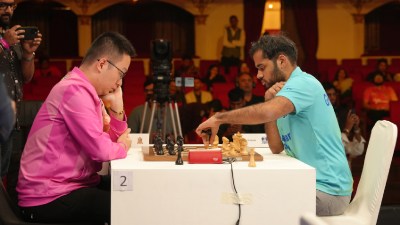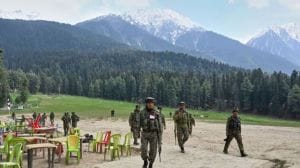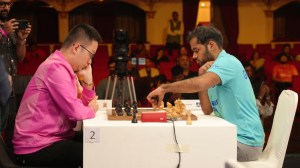Tyabji, a man for our times
One of India’s greatest sons, Badruddin Tyabji was born in October, 160 years ago. The life of Tyabji needs to be recalled as it was hi...

One of India’s greatest sons, Badruddin Tyabji was born in October, 160 years ago. The life of Tyabji needs to be recalled as it was his ideals and those of his contemporaries, which shaped our liberal, tolerant and secular society. Regrettably these ideals are being forgotten and even undermined today. Tyabji was an independent and fearless judge of the Bombay High Court, he was also a social reformer and educationist and, above all, a champion of Hindu-Muslim brotherhood. He has many firsts to his credit. He was the first Indian barrister to practise in the Bombay High Court, the first Muslim advocate of the high court and the first Indian to become an acting chief justice of Bombay High Court.
Tyabji enrolled himself on December 23, 1867, in the Bombay High Court. An Indian barrister stood very little chance of being briefed because it was believed that English judges would not take kindly to an Indian appearing before them. He overcame this prejudice to become the first Indian to successfully practise on the original side of the Bombay High Court.
He was fortunate to have for his friends some of the greatest names, not only in the legal profession but in Indian public life. There was the redoubtable Phirozshah Mehta, the brilliant and precocious Kashinath Trimbak Telang, who became the vice chancellor of the Bombay University at 32 and a judge of the high court at 38, and Mahadev Govind Ranade a classical scholar in Hindu law who also became a judge of the Bombay High Court. Together, Tyabji, Mehta and Telang came to be known as the “brilliant triumvirate”. They founded the Bombay Presidency Association which became the forum for demand for reforms. It was a fortunate and unique combination — a Muslim, Parsi and Hindu — each dressed in his own native attire, each a leader of his community, each intellectually brilliant and each first class speakers.
They worked with extraordinary energy. Nothing of public interest or welfare great or small escaped their attention. They agitated for municipal reforms, spoke for the Ilbert Bill and for raising the age of consent in marriage for girls and for raising the age of entrance to the Indian Civil Service. They represented the very best in the secular and moderate reform movement of those time.
It was under the auspices of the Bombay Presidency Association that the first meeting of the Indian National Congress was held in Bombay in 1885. In 1887, Badruddin Tyabji presided over the third annual meeting of the Indian National Congress at Madras. In a brilliant oration he called upon his Muslim brothers to work shoulder to shoulder with the rest of their fellow countrymen. The speech was acknowledged as an oratorical effort of the highest order in the history of the Indian National Congress. Thereafter, as Mahatma Gandhi observed, Badruddin Tyabji was for years the decisive factor in the deliberations of the Congress. As a judge he would not suffer any indignity to Indians. On one occasion, he roundly pulled up an English barrister who spoke disparagingly of the Indian National Congress in his court. Tyabji will always be remembered for his learned judgment releasing Bal Gangadhar Tilak on bail in 1897 in the first Tilak trial for sedition. In 1902, Tyabji was appointed acting chief justice. He would have been the chief justice in 1906 but for his sudden death in London on August 19, 1906, at the age of 62.
Great as his achievements were as a lawyer and a judge, greater was Tyabji’s contribution to the public life of the times. He was in the forefront of reform of his own community. He realised the lack of English education amongst the Muslims had made them backward. He therefore founded the Anjuman-i-Islam. He resolutely opposed the purdah system for Muslim women as it prevented their education and social advancement.
Above all, he remained till the end of his life a fervent secular and cosmopolitan individual and believer in the brotherhood of the two great Indian communities. On the death of his great friend and colleague Justice Ranade, he recited the lines of Urfi, the court poet at Jehangir’s court, which could applied just as well to himself: “Live thy life in such a manner that on thy death the Mussalman may wash thy body with sacred waters of the Zamzam well at Mecca, and the Hindu may burn it on the holy ghats.”
The writer is a former solicitor-general of India
- 01
- 02
- 03
- 04
- 05































